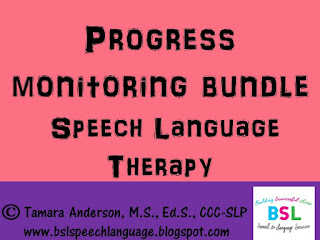Another year is quickly coming to a close! I truly appreciate the support of my fellow speech-language pathologists, educators, and parents who have read my blog this year. I share my ideas so that others will have strategies and activities to use in speech-language therapy, in the classroom, and at home to improve communication skills of children with special needs.
It has been almost three years since I started this Building Successful Lives blog! I can't wait for all the things that are in store in 2016! I would love for those who purchased curriculum material to leave feedback in my TPT store. I am going to give away some complimentary resources to a few lucky winners! The amount of prizes are TBD! :) I am committed to making quality informal assessments, speech-language therapy activities, and E/LA common core aligned instructional materials.
Enjoy the rest of 2015 and I wish you all the best in 2016!
Tamara Anderson













